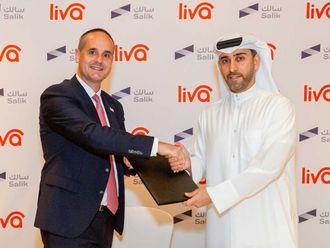My column last week about transparency in Iraq oil industry brought many comments that made me revisit the subject to do justice to these comments.
Perhaps the comments were also influenced by the fact that “amidst pomp and ceremony, top Iraqi officials gathered on April 3 at Baghdad’s Al Rashid Hotel to celebrate the country’s latest steps toward oil sector transparency, they marked the occasion with patriotic songs and optimistic speeches” as reported by Iraq Oil Report.
The gathering made public the Iraq’s Extractive Industries Transparency Initiative (IEITI) report about Iraq oil accounting for 2010 after deleting the chapter related to Kurdistan Regional Government (KRG) because the submissions by KRG did not meet the standards of EITI though they were published in an earlier version with comments and therefore the omission is seen as reflecting tension between the central government and KRG.
Deputy prime minister Shahristani said “this report is not complete because it does not cover this important part of Iraqi oil (from the KRG), which was extracted without the knowledge of the Iraqi government.” But the infringement has been going on for almost ten years and it is about time the central government tell the Iraqi people what it intends to do about it.
Richer consultants
With respect to the agreement to be implemented by the US Agency for International Development (USAID) in “a bid to improve the ministry’s level of transparency”, a friend wrote to say “USAID is free to waste taxpayer’s money as long as it does not take it back from the Iraqis. But the only individuals who are going to come out of this smiling and richer are the consultants and the ministry employees who will receive a free trip or two and for sure it will not be the Iraqi people.”
The more scathing comment came from someone who is obviously in the know and I quote at length “your column in Gulf News about transparency in the oil sector in Iraq invites me to say that the question of oil measurement and metering has been around for years now. In spite of local and international emphasis, the conditions on the ground indicate without the slightest doubt that this issue is treated with ignorance and carelessness in the provision of the necessary equipment and in the application of the appropriate regulations of measurements and standardisation adopted by the ministry, which resulted in cover-up of corruption and wide spread suspicions. The ministry’s claim that the regulations are fully applied in accounting for oil flows where billions of dollars are involved is doubtful. There is no correction for temperature or for the high water cut sometimes. The management of measurements in accordance with regulations is not there and therefore there is no reconciliation of produced quantities from the wells and at different stages of the oil movements up to the export or consumption outlets. The ministry often ignores details and appoints unqualified inspectors with limited or no experience which may encourage misuse or corruption and the loss of very expensive equipment. The ministry has often denied all the above negatives and therefore it is important for an independent body to check the authenticity of these allegations especially with respect to measurements related to international oil companies’ accounts and remuneration and whether these companies themselves have provided measuring devices. For all these reasons, I believe that corruption, true or alleged, in the oil industry is far bigger than in any other activity in Iraq but it is less apparent or understood due to its special technical circumstances, which are hard for politicians to grasp.”
Reality
Another comment I received says “I have read articles relating to Iraq acceptance as a member of the Extractive Industries Transparency Initiative (EITI) and I believe those who believe in this must be living in the world of fantasy and far away from reality. I wish the writers can have the opportunity to spend sometime in the field and to see for themselves how the oil flow measurement, the accounts of international oil companies and their remuneration are handled with respect to supervision and auditing reports then they will discover that the transparency they are talking about is that related only to nice seminars in affluent surroundings.”
Another comment says “if oil and gas are the property of all Iraqis, then why all the information about contracts, production and remuneration are kept secret? Will the Iraqi people be kept in the dark about what is most important for their wellbeing? What kind of transparency is this?”
Uday Awad, a member of parliament recently said “the Iraqi Parliament does not know anything about the nature of the Ministry of Oil’s work or the contracts it signs.”
No wonder that one commentator said that the talk about transparency is giving him headache.
The writer is former head of the Energy Studies Department at the Opec Secretariat in Vienna.












